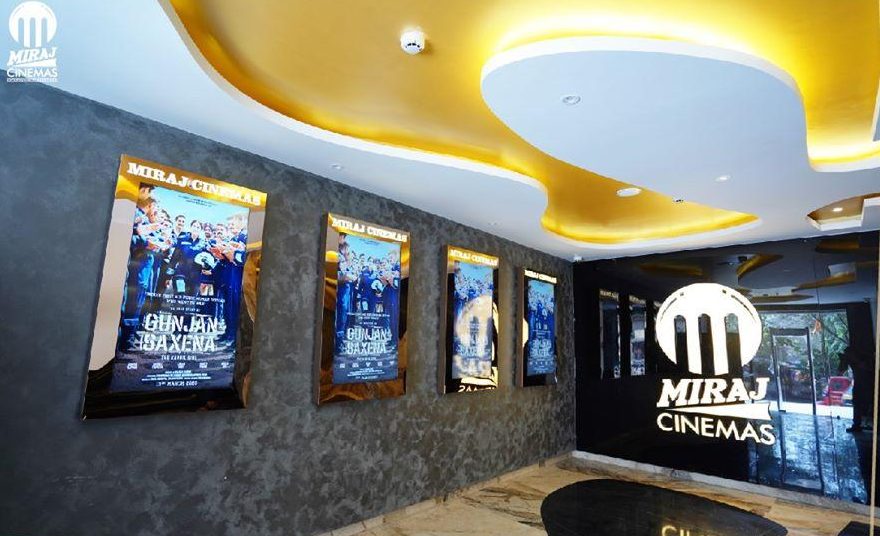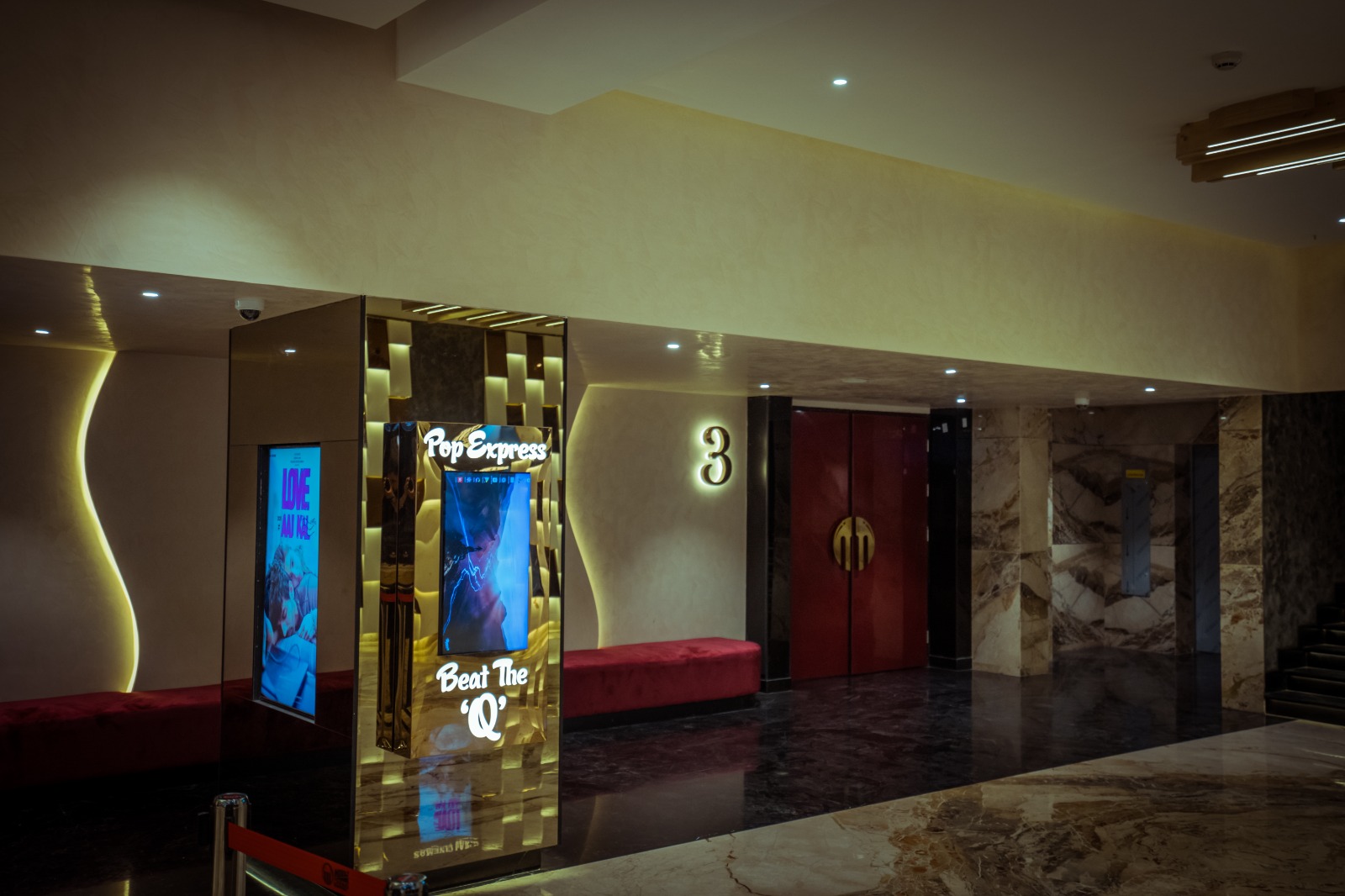Amit Kumar Sharma, managing director-Entertainment, Miraj Group on the Miraj Cinemas’ ideology, strategy and use of technology to give the audiences of Bharat a blockbuster movie experience
Despite OTT (Over the Top), about 74% of Indians still choose a theatre to watch a film owing to the immersive experience it offers as per an October 2023 BookMyShow report. It is this love for cinema Indians have that Mumbai-based Miraj Cinemas aims to capitalize on.
The cinema operator is part of the Miraj Group, which has business interests in tobacco, FMCG, pipes & fittings, stationery and infrastructure development in addition to entertainment.
The 1987-established group, which has 20 group companies, ventured into movie production in 2010 through Miraj Entertainment. In 2012, the group expanded its presence in the entertainment industry by getting into the cinema exhibition business.
With 200 screens across 62 cinemas in 42 cities and 16 states, Miraj Cinemas is the third-largest cinema chain in the country after PVR Inox and Cinepolis which have 1,711 and 436 screens, respectively.
Despite this, few people are aware of the cinema chain, which through several unique offerings like a 100% vegetarian menu with Jain counters at select locations and a pop-corn ordering kiosk, is bringing an aspirational movie experience to consumers. The group focuses on opening cinemas primarily in tier 2 towns.
Managing Director Amit Kumar Sharma shared that the company has grand ambitions for the business with plans to have 300 screens by mid-2024.
Sharma speaks to IndiaRetailing about the company’s expansion plans, innovations, and about bringing a tech-driven aspirational experience to Bharat. Edited excerpts…

Tell us about the company.
Miraj Cinemas is one of the youngest companies in the cinema exhibition space. Ours is an 11-year journey minus two years of the pandemic. We were around 120 odd screens before the pandemic. Today, we operate about 200 screens and are counted among large chains in the country in terms of number of screens.
But not many people know about Miraj Cinemas…
That is because we have expanded without making too much noise. That was part of the strategy; we did not want to scream in the market about who we are, what we do, and how many numbers screens we are opening because with due respect, when you look at PVR, Inox and Cinepolis, have built fantastic brands. So, we wanted to grow in our space and then become visible in the market and let people start talking about us rather than us talking about ourselves.
This is a difficult space to be in. How has your journey been so far?
A mall has multiple brands in a single category but only one cinema. Also, it’s a capital-intensive business. You need to win the confidence of developers and convince them why Miraj and not some other brand. Also, you can’t give high rentals compared to bigger brands. It’s indeed a difficult space to be in.
At the same time, because I have been doing this throughout my life, I’ve been able to convince developers for Miraj and find good partners who helped us expand.
Considering the shift to family entertainment centres (FEC) in malls, is it a good time to be in the business of cinemas?
FEC has taken over the largest space in a mall now. A decade before, food courts were one of the most struggling parts of their business. Today, it is one of the best. And it’s all because of changing consumer behaviour.
Pre-pandemic, we were a high-flying industry. Post-pandemic we have been struck by lightning. We’re not down and out, but we are a little conscious in terms of our approach to expansion, as an industry.
Mirat Cinemas is aggressively looking for expansion with 52 screens in the fit-out stage because we believe in this story. By 31 March 2024, we will have about 250 screens. And latest by October 2024, we will have 300 screens if all goes well. The deals are done—the documents have been signed and the money given.
Where is the capital coming from?
We are taking money from the parent company; we are raising funds through internal accruals. We were a debt-free company pre-pandemic, so our books can take debt, which is what we are doing.
Which geographies are you expanding to?
We have always been vocal about being a pan-India company rather than a regional player. When you look at the expansion of Miraj, you will find that we were opening in Tamil Nadu, Andhra Pradesh, Kerala, Karnataka, Telangana, NCR, and Maharashtra. Around 40% of our screens are down South—in all the five states and we want to take it to 50%, maybe three years down the line.
Why the focus on South India?
Because that’s where the maximum recovery post-pandemic happened for the cinema business. Southern India recovered faster compared to the northern belt of the country. Tamil Nadu and Karnataka have almost reached pre-pandemic numbers. Telangana and Andhra Pradesh are at around 70% recovery, Maharashtra at around 70%-75%.
Currently, we operate out of 16 states of the country. We will open in three more states this year to be present in 19 states.
Will it be in metros or tier 2 and tier 3 cities?
The whole Miraj story is based on tier 2, and tier 3 cities. Our journey started from there. In Maharashtra, we operate cinemas in Chandrapur, Akola, and Amravati; in Karnataka, we operate in Raichur, Gulbarga; in Andhra Pradesh-Telangana, we operate at Vijayawada; in Tamil Nadu, we operate at Coimbatore. When it comes to Uttar Pradesh, we’re in Hisar, Sonipat and Saharanpur. Our properties are coming up in Sambalpur in Orissa; and Kozhikode in Kerala.
We were the first to believe in the story of tier 2/3 cities–Bharat, when it comes to cinemas.
We believe in the ideology of Bharat. We try to get into such cities because the level of aspiration in people there is much higher compared to tier 1.
Can you please elaborate?
Today, people everywhere are looking for a premium format. So, out of the 100s screens which we will be opening before October 2024, in around 17 to 20, we will have all recliner auditoriums which we call Premio and eight to 10 large screen formats, which we call Mirage Maximum.
In the new properties which we are signing at the designing stage, we are making sure that we have a large format and a premium screen to suit consumer preferences. In our Patiala property in Punjab, which is a four-screen Multiplex, three are normal screens and one is Premio.
How do you use technology to enable experiences?
When you walk into a Miraj Cinema, you can order food using a digital kiosk called Pop Express in 30 seconds. The order will be delivered to your seat.

All across the Miraj Cinemas, all our 45,000 seats have bar codes, which can be scanned to get food delivered to the seat without entering the seat number or the screen number.
So, we are working on many such things to take the customer experience to the next level.



